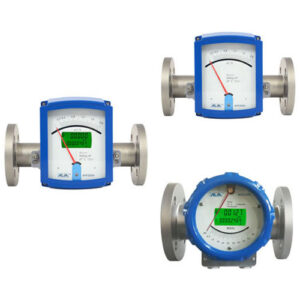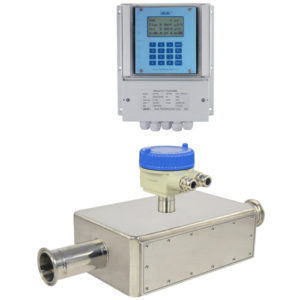Welcome to our friendly blog where we delve into the fascinating world of Variable Flowmeters! In today’s fast-paced industries, process control and efficiency play a vital role in the success of businesses. Flow meters are key instruments used to measure the flow of fluids or gases, providing crucial data for process control.
In this blog post, we will explore the importance of flow meters in achieving process control and efficiency, discuss their various types, benefits, applications in different industries, factors to consider when choosing them, and the essential maintenance and calibration procedures. So, let’s dive in!
- Understanding Flow Meters:
To comprehend the significance of flow meters, it is essential to understand their basic concept and functionality. Flow meters are instruments designed to measure the flow rate of fluids or gases in a given system. They allow businesses to accurately monitor and control the flow in their processes, ensuring optimum efficiency.
There are several types of flow meters available, each with its own principle of operation. Some common types include:
- Differential Pressure Flow Meters: These meters measure the pressure difference across an obstruction in the flow path, such as an orifice plate, venturi tube, or flow nozzle. By relating this pressure drop to the flow rate, these meters provide accurate measurements.
- Magnetic Flow Meters: Utilizing Faraday’s law of electromagnetic induction, these meters measure the flow rate of conductive fluids by generating a magnetic field and measuring the induced voltage created by the flow.
- Ultrasonic Flow Meters: These meters use ultrasonic waves to determine the flow rate by measuring the time it takes for the waves to travel between two points in the flow stream. They are commonly used for non-invasive flow measurements.
These are just a few examples of the diverse range of flow meters available in the market. Each type has its own advantages and is suitable for specific applications.

- Benefits of Using Flow Meters:
The use of flow meters brings numerous benefits to businesses, especially in terms of process control and efficiency. Let’s explore some of these benefits:
- Accurate Measurements: Flow meters provide precise and reliable measurements of flow rates, allowing businesses to have a better understanding of their processes. This accuracy enables them to make informed decisions and adjustments to optimize efficiency.
- Optimization of Efficiency: By accurately measuring flow rates, flow meters help identify areas of inefficiency and wastage in processes. This information enables businesses to make improvements, leading to enhanced productivity, reduced costs, and increased profitability.
- Minimization of Waste: With accurate measurements, businesses can identify and rectify any leaks or excessive consumption, reducing waste and environmental impact.
- Product Quality and Consistency: In industries where product quality is crucial, flow meters ensure consistency by maintaining a constant flow rate. This consistency plays a vital role in achieving reliable product quality and customer satisfaction.
III. Applications in Various Industries:
Flow meters find extensive use in a wide range of industries. Let’s explore some specific examples:
- Oil and Gas: In the oil and gas industry, flow meters are used to measure the flow rates of crude oil, natural gas, and various refined products. Accurate flow measurements help optimize extraction, processing, and distribution processes, ensuring efficient operations and minimizing losses.
- Water Treatment: Flow meters are essential in water treatment plants for measuring and monitoring the flow rates of water and various chemicals used in treatment processes. This data enables precise dosing and ensures the quality and safety of the treated water.
- Pharmaceuticals: In the pharmaceutical industry, flow meters play a critical role in measuring and controlling the flow rates of liquids and gases used in the manufacturing processes. Accurate measurements are vital for maintaining consistent product quality and adhering to stringent regulations.
- Food Processing: Flow meters are used in food processing plants for measuring and controlling the flow of ingredients, such as liquids, gases, and additives, in various stages of production. Precise measurements ensure consistency in product quality and prevent over or under-dosing.
These are just a few examples of how flow meters contribute to process control and efficiency in different industries. Their applications are vast and varied, and they continue to play an essential role in numerous sectors.
- Factors to Consider When Choosing Flow Meters:
When selecting a flow meter for a particular application, several factors should be taken into consideration.
These factors include fluid type, temperature range, pressure rating, accuracy requirements, maintenance needs, and cost. It is crucial to consult with flow meter experts or professionals to ensure the right selection for specific application needs.
- Maintenance and Calibration:
To ensure accurate readings over time, regular maintenance and calibration of flow meters are essential. Maintenance procedures vary depending on the type of flow meter and the environment in which it operates.
Some general guidelines for maintenance include keeping the flow meter clean, checking for any build-up or corrosion, and ensuring proper installation and sealing. Calibration should be performed periodically to verify the accuracy of the flow meter and make any necessary adjustments.
Conclusion:
Flow meters play a vital role in achieving process control and efficiency in various industries. Their ability to accurately measure and monitor flow rates enables businesses to optimize productivity, reduce waste, ensure product quality, and comply with regulations. From oil and gas to water treatment, pharmaceuticals, and food processing, flow meters find extensive applications, contributing to the success of these industries.
When choosing a flow meter, it is crucial to consider various factors and consult with experts to ensure the right selection. Regular maintenance and calibration are also essential to maximize the lifespan and accuracy of flow meters.
So, embrace the world of flow meters and unlock the potential for process control and efficiency in your industry!


